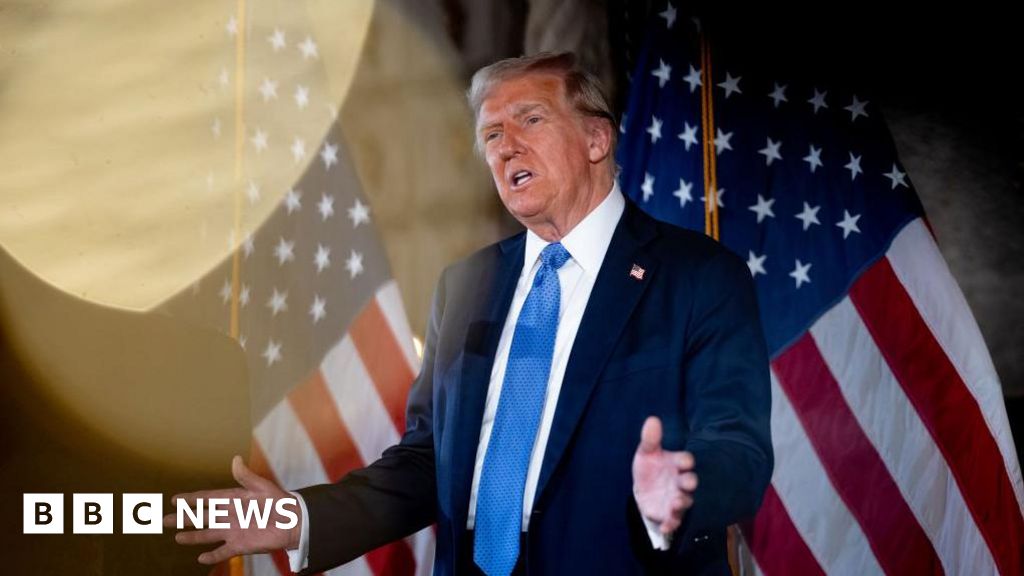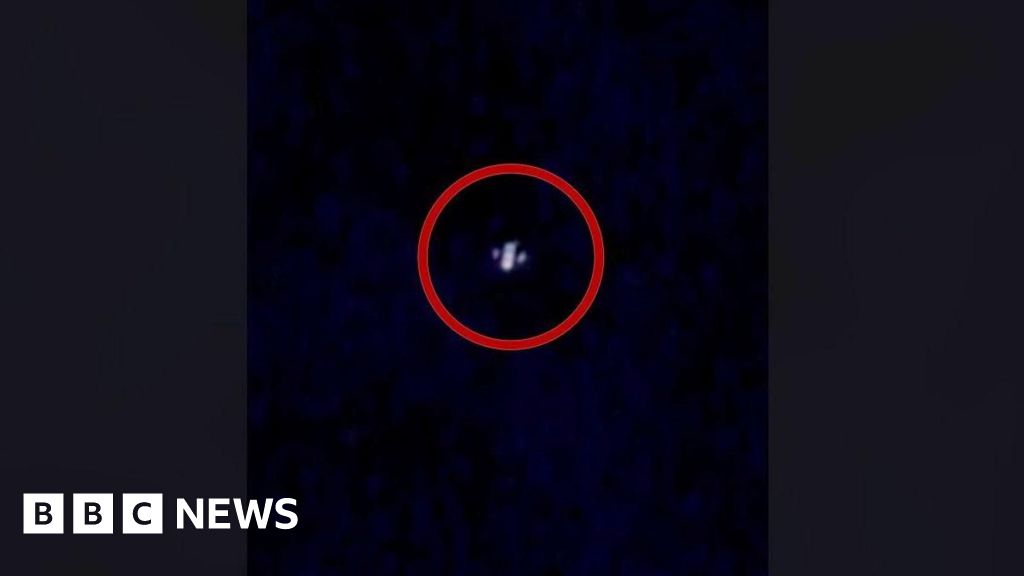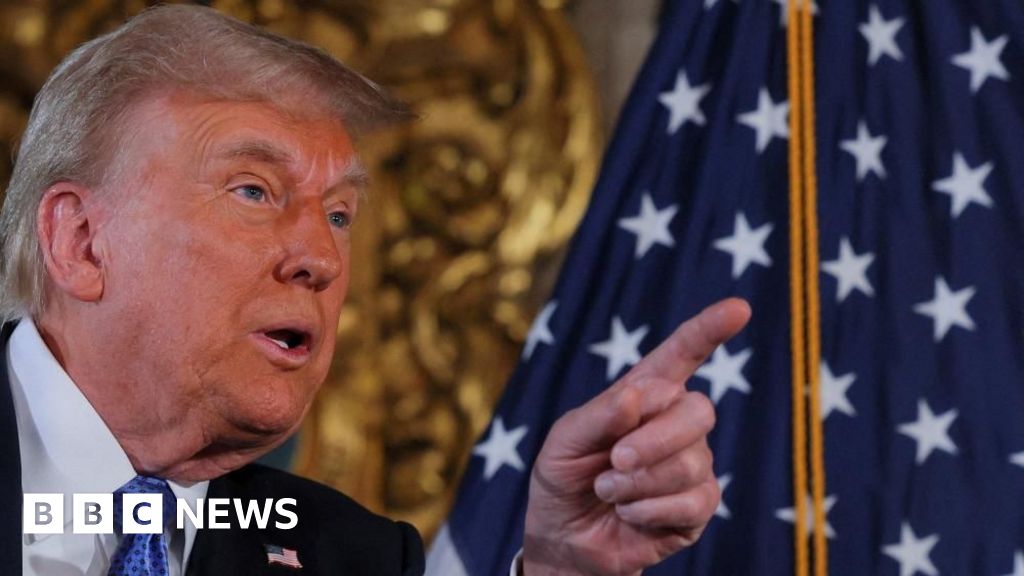ARTICLE AD BOX
US Vice-President Kamala Harris defended how her policy positions have shifted since becoming the Democratic presidential nominee in her first interview since taking on the party mantle.
"I think the most important and most significant aspect of my policy perspective and decisions is my values have not changed," she said.
In an early clip of the interview - which was pre-recorded in Savannah, Georgia, on Thursday - CNN's Dana Bash had asked why Ms Harris's positions from her earlier political career had moderated on issues like immigration and fracking.
The full interview of Ms Harris and her running mate, Minnesota Governor Tim Walz, will air on CNN at 21:00 ET on Thursday (02:00 BST Friday).
In the preview clip, Ms Harris pushed back that her policy positions had undergone "changes".
Harris referred to her support for the Green New Deal, a Democratic proposal to reduce reliance on fossil fuels, as something that remains steadfast.
"I have always believed, and I've worked on it, that the climate crisis is real, that it is an urgent matter to which we should apply metrics that include holding ourselves to deadlines around time," she said.
"We did that with the Inflation Reduction Act. We have set goals for the United States of America, and by extension the globe, around when we should meet certain standards for reduction of greenhouse gas emissions."
As vice-president, Ms Harris helped pass the Inflation Reduction Act, which funnelled hundreds of billions of dollars to renewable energy and electric vehicle tax credit and rebate programs.
On the subject of "securing our border" Ms Harris again said "my values have not changed".
She referred to her time as the attorney general of California, "prosecuting transnational, criminal organisations".
But Ms Harris once held more progressive immigration views as a senator and in her campaign for president in 2020. She had previously advocated for the closure of immigration detention centres and decriminalising illegal crossings.
The vice-president stressed, however, that her values had not shifted.
Instead, she said her travels across the country as vice-president had made her "believe it is important to build consensus, and it is important to find a common place of understanding of where we can actually solve problems".
Along those lines, Ms Harris committed in a separate clip to consider a Republican as a member of her presidential cabinet. She said it would fulfil her promise to be a president “for all Americans”.
“I think it’s really important," Ms Harris said. "I have spent my career inviting diversity of opinion. I think it’s important to have people at the table when some of the most important decisions are being made that have different views."
Ms Harris has faced criticism from Republicans and some pundits for refusing to hold a press conference or an on-the-record, in-depth interview until now. Her critics argued that she was avoiding having her record challenged.
Ms Harris has taken brief questions from journalists and social media influencers since securing the nomination shortly after President Joe Biden ended his campaign on 21 July.
But her appearance on CNN marks the first time since Mr Biden's abrupt exit that she has sat down for an interview that could deeply interrogate her policy agenda and prior record.
Ms Harris promised nearly three weeks ago to schedule an interview before the end of August.
In the meantime, Republicans repeatedly accused her of dodging the press.
Former President Donald Trump, her Republican opponent, continued that line of attack in an interview with the Daily Mail on Thursday.
"Why isn't it live?" he said in a clip of the interview posted online. "It's not a live interview. It's an interview that's going to be taped and then edited and then put out. So that's not even an interview. Then she's doing it with her vice president (nominee) sitting there."
Ms Bash, the CNN journalist who conducted the interview of Ms Harris and Mr Walz, moderated a Republican primary debate between Nikki Haley and Ron DeSantis in January. She was also one of the moderators of the 27 June debate between Mr Biden and Trump.
Mr Biden's performance in that debate was widely seen as what sparked the effort for the president to withdraw from the race.
Ms Harris's last sit-down TV interview was with CNN’s Anderson Cooper shortly after the June debate.
The Harris-Walz campaign is currently on a bus tour of Georgia, a key southern state where Mr Biden narrowly edged out Trump in 2020 - the first time a Democrat won the state since Bill Clinton in 1992.
On Thursday, Ms Harris is visiting the city of Savannah where she is holding a campaign rally at the state's oldest historically black college.
The event coincides with a major outreach effort that is targeting young voters. The campaign plans to hold events at university campuses in major battleground states such as Georgia to encourage young Americans to cast their ballots in November.
Trump and Ms Harris are scheduled to face off in a debate aired on ABC News on 10 September, though the presidential candidates are still working to resolve a dispute over whether microphones will be unmuted throughout.

 3 months ago
18
3 months ago
18








 English (US) ·
English (US) ·